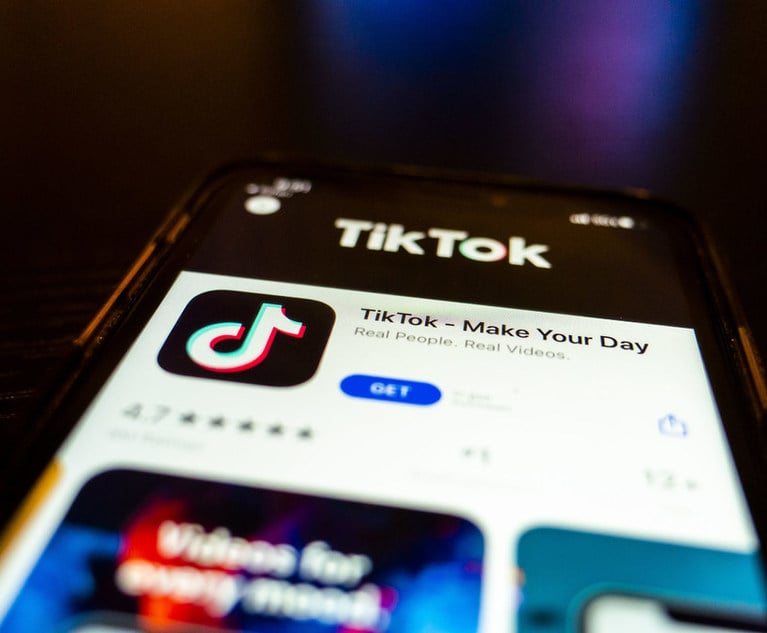When to Bring Up Alternative Work Schedules in the Interview Process
I'm interviewing for a job and want to telecommute one to two days a week, but I don't want to give the impression that I don't want to work hard or it's all I care about. Should I raise the issue immediately or wait?
October 02, 2019 at 09:50 AM
4 minute read
 Julie Brush, Solutus founding partner.
Julie Brush, Solutus founding partner.
Q: I'm interviewing for a job and want to telecommute one to two days a week, but I don't want to give the impression that I don't want to work hard or it's all I care about. Should I raise the issue immediately or wait?
A: In today's legal market, alternative work schedules are becoming increasingly more common. From flexible hours to telecommuting, employers are demonstrating more flexibility when it comes to "office face time." This evolving dynamic is primarily the result of a few factors: technology that keeps professionals connected remotely, changing cultures … and values, and an employer's desire to gain a competitive advantage in the hiring market. This market development is good news for lawyers who have multiple work/life responsibilities and seek career schedules that can enable greater flexibility to juggle more.
But not every employer is on board with the flexible schedule model. For some, being in the office is paramount to learning, being connected, available, engaged and efficient. And it's a culture must that facilitates better service to internal clients and collaboration with colleagues.
For candidates moving through an interview process, determining which end of the spectrum an employer falls—without being perceived negatively, can be challenging. So some candidates wait until love is in the air before raising the issue. But is this timing wise? Or should all cards be on the table from the beginning?
It depends.
If telecommuting is an absolute requirement for your interest in a particular opportunity, then transparency about your need from the beginning is the wisest path. Why? Because hiring managers are busy (as are you). And time is precious. Hiring a new lawyer takes time and effort—so wasted time is to be avoided. Consequently, honesty up front can either clear the path forward or allow both of you to move on. For those in this category, a thoughtful message is important when raising the question. Below is an example:
Employer: "Do you have any questions?"
Candidate: "Yes, the role as you've described it sounds terrific and I think my skillset aligns well with what you are seeking. I'm attracted to the diversity of the position and the culture seems great. Overall, I'm very excited about the opportunity. One thing I was curious about was your thoughts on flexible schedules—and whether there would be the opportunity to work remotely one to two days a week once you felt comfortable with my work. Given my current responsibilities, some schedule flexibility would be important factor for me in my decision. I have a dedicated work ethic and believe that being connected and available is an imperative part of success. So a remote day would be equally productive. I know employers differ on the issue. But do you envision some flexibility for the right person?"
If telecommuting is a "nice to have," but not a hard requirement in your decision-making process, then it's acceptable to discuss the topic further down the interviewing road and after you've developed greater interest in the position. Below is a messaging example:
Employer: "Do you have any questions?"
Candidate: "Sure, everything you've said about the role is really appealing to me and I think I'd be a great fit. Can you give me a sense of how the department functions? For example, how closely does the team work together? Do you require everyone to come to the office each day from 9 to 6 p.m. or is there flexibility on hours/telecommuting? I know that managers have different philosophies on this so it'd be great to know how you approach it."
Despite the increasing attraction among candidates, employers have varying appetites for workplace flexibility. So when approaching the topic, applicants should use good judgment on the when and how of their messaging. A must-have alternative work schedule merits immediate transparency while a nice-to-have discussion can wait just a tad longer. So determine which situation applies to you and proceed accordingly.
Julie Q. Brush is the founder and author of The Lawyer Whisperer (www.thelawyerwhisperer.com), a career advice column for legal professionals, also found on LinkedIn. She is co-founder of Solutus Legal Search, a legal search/consulting boutique firm, serving as a strategic adviser to lawyers, law firms and corporations.
This content has been archived. It is available through our partners, LexisNexis® and Bloomberg Law.
To view this content, please continue to their sites.
Not a Lexis Subscriber?
Subscribe Now
Not a Bloomberg Law Subscriber?
Subscribe Now
NOT FOR REPRINT
© 2025 ALM Global, LLC, All Rights Reserved. Request academic re-use from www.copyright.com. All other uses, submit a request to [email protected]. For more information visit Asset & Logo Licensing.
You Might Like
View All
Build It and They Will Come: Tips to Market Your Practice as a Junior Attorney
6 minute read
Yelp Sues Google for Alleged Antitrust Violations, Citing Previous 'Watershed' Government Ruling

There's Something in the Water: San Diego Is Once Again a Hot Market for National Law Firms
6 minute read
What Happens When You Go Viral? How a Law Firm Associate Manages Her Social Media Success
5 minute readTrending Stories
Who Got The Work
J. Brugh Lower of Gibbons has entered an appearance for industrial equipment supplier Devco Corporation in a pending trademark infringement lawsuit. The suit, accusing the defendant of selling knock-off Graco products, was filed Dec. 18 in New Jersey District Court by Rivkin Radler on behalf of Graco Inc. and Graco Minnesota. The case, assigned to U.S. District Judge Zahid N. Quraishi, is 3:24-cv-11294, Graco Inc. et al v. Devco Corporation.
Who Got The Work
Rebecca Maller-Stein and Kent A. Yalowitz of Arnold & Porter Kaye Scholer have entered their appearances for Hanaco Venture Capital and its executives, Lior Prosor and David Frankel, in a pending securities lawsuit. The action, filed on Dec. 24 in New York Southern District Court by Zell, Aron & Co. on behalf of Goldeneye Advisors, accuses the defendants of negligently and fraudulently managing the plaintiff's $1 million investment. The case, assigned to U.S. District Judge Vernon S. Broderick, is 1:24-cv-09918, Goldeneye Advisors, LLC v. Hanaco Venture Capital, Ltd. et al.
Who Got The Work
Attorneys from A&O Shearman has stepped in as defense counsel for Toronto-Dominion Bank and other defendants in a pending securities class action. The suit, filed Dec. 11 in New York Southern District Court by Bleichmar Fonti & Auld, accuses the defendants of concealing the bank's 'pervasive' deficiencies in regards to its compliance with the Bank Secrecy Act and the quality of its anti-money laundering controls. The case, assigned to U.S. District Judge Arun Subramanian, is 1:24-cv-09445, Gonzalez v. The Toronto-Dominion Bank et al.
Who Got The Work
Crown Castle International, a Pennsylvania company providing shared communications infrastructure, has turned to Luke D. Wolf of Gordon Rees Scully Mansukhani to fend off a pending breach-of-contract lawsuit. The court action, filed Nov. 25 in Michigan Eastern District Court by Hooper Hathaway PC on behalf of The Town Residences LLC, accuses Crown Castle of failing to transfer approximately $30,000 in utility payments from T-Mobile in breach of a roof-top lease and assignment agreement. The case, assigned to U.S. District Judge Susan K. Declercq, is 2:24-cv-13131, The Town Residences LLC v. T-Mobile US, Inc. et al.
Who Got The Work
Wilfred P. Coronato and Daniel M. Schwartz of McCarter & English have stepped in as defense counsel to Electrolux Home Products Inc. in a pending product liability lawsuit. The court action, filed Nov. 26 in New York Eastern District Court by Poulos Lopiccolo PC and Nagel Rice LLP on behalf of David Stern, alleges that the defendant's refrigerators’ drawers and shelving repeatedly break and fall apart within months after purchase. The case, assigned to U.S. District Judge Joan M. Azrack, is 2:24-cv-08204, Stern v. Electrolux Home Products, Inc.
Featured Firms
Law Offices of Gary Martin Hays & Associates, P.C.
(470) 294-1674
Law Offices of Mark E. Salomone
(857) 444-6468
Smith & Hassler
(713) 739-1250






